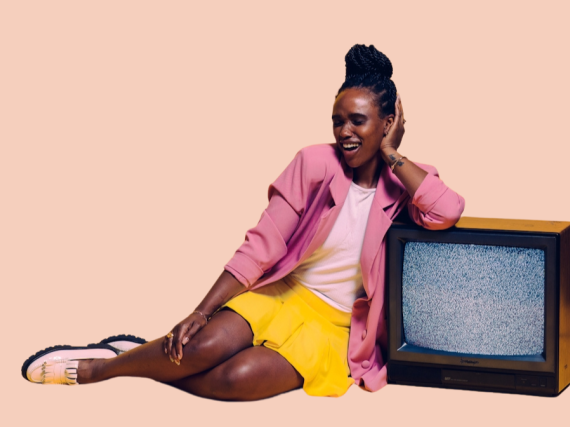Healthy Relationships and Transitioning from High School to College
Congratulations class of 2020! You finished high school, and the world is at your fingertips. If you’re preparing for college right now, you may be thinking a lot about your current relationship, or relationships that lie ahead.
Going Long Distance or Starting Fresh
I’m sure you’ve heard it: “You have to be single in college to really experience it! You’ll regret staying with your high school partner!”
This doesn’t take into account the strength and importance of the connections you’ve made in high school and how important to your life your partner may be. Here are some factors to consider before making a decision:
- How far away are your schools? Can you visit each-other?
- If your partner is moving across the country and to visit for one weekend would cost thousands of dollars and take hours of travel, this may be a strain. It will take a lot out of your schedule and out of your money to see each other even once a month.
- Is your high school relationship worth the hardships of long distance?
- List out the pros and cons of breaking up or going long distance. If you feel like staying with your partner outweighs the difficulties of not being in the same town, this is a valid way to feel. If you feel like you don’t see a future with your partner and want to be able to have a fresh start, that is totally valid as well.
- You and your partner should communicate openly about where you see the relationship going, and what you both want for the future.
- What do YOU want your college experience to look like?
- You are going to be the most independent you’ve ever been in your life. You have the ability to choose how you want your future to look, and the way you want to spend the next 4 years. Wanting to leave room to meet other people and try out the single life, doesn’t mean you don’t love and care for your partner.
- Be honest with yourself and with your partner about what you value in your college experience. If having the freedom to explore is what you value over maintaining a long-distance relationship, that is totally ok. And if staying with your partner is more important to you than possibly hooking up with new people, that is totally ok too.
Hook-Up Culture
Hook-up culture is extremely prevalent in college. Especially with the popularity of apps like Tinder and Grindr, the atmosphere of college dating life often values casual hook-ups and friends with benefits over serious relationships. . For some, this is very liberating and empowering. If you feel like you want to take part in hook-up culture, it is important to understand how to stay safe and healthy while still having fun:
- BIRTH CONTROL!
- If you know you want to be able to freely hook-up with whomever you want, the way to start is by getting birth control. For women, this can mean talking to your doctor or going to the campus health clinic, a Planned Parenthood, or other family planning center and starting a birth control method like the pill, IUD, implant, or the shot to protect against unplanned pregnancy.
- Always use a condom. Always.
- It’s also crucial for men and women that you have condoms ready and available at all times. Especially with hook-up culture, there is no way to know for sure if your casual hook-up has previously practiced safe sex. STIs can be transmitted through all types of sex; oral, vaginal, anal, and nonpenetrative. In order to protect yourself from catching an STI your partner may not even know they have, you should always use a barrier method, such as an internal condom, dental dam, or external condom. Remember- the only birth control method that can prevent STIs is a condom!
- Be consensual, communicative, and honest.
- Receiving consent at every stage of your hook-up from your partner is extremely important. Before doing anything, always ASK if it is ok beforehand, and make sure you receive a verbal consent. If your partner says no, or decides they want to stop, you must respect this entirely. Discuss with your partner some ground rules before doing anything.
- When hooking up in a party situation where drugs and alcohol have been involved, remember someone that is too drunk or too high to make sound decisions is not in the right mind to give consent.
- You may hook up with someone that you just met and haven’t discussed the nature of your relationship with. In this situation, it's important to make sure you are getting consent and communicating with what you are and are not comfortable.
- If you hook-up multiple times with the same person, it is healthy to discuss the nature of your relationship and what you want out of it. If you want to remain open and only hook-up, that’s totally fine, but you should communicate this to your partner early on, so they are aware and understand. If you feel like you want to be exclusive with a partner, you should communicate this too so that you can protect your own feelings, and let your partner know what you expect.
Not into the casual hook-ups? That’s ok!
In college, it can seem like people are always hooking up, and you may feel left out if you haven't had—or don’t want—a hook-up. Here’s a secret, half of hook-up culture is just for show. People hook-up just so they can say they did and sometimes they lie to look cool to their peers. You absolutely do not have to partake in anything you don’t want to, and it absolutely does not make you lame! There are many valid reasons not to partake in hook-up culture, and guess what, you don’t need to explain or justify your reasons to anyone. There are people out there who feel the same way as you and are also looking to focus on themselves or looking for a committed relationship. This leads us again to the importance of honest communication of your values and desires.
Take time to plan for your future and get to know yourself and your values when it comes to sex and relationships in the future. It will help you to have a smoother transition into college life!
Julia Gonzalez is a sophomore at Tufts University in Massachusetts. She is a writer for Her Campus at her school, and an executive board member of Tufts Active Minds. She is studying Clinical Psychology with a minor in Child and Human Development, as well as Spanish.



